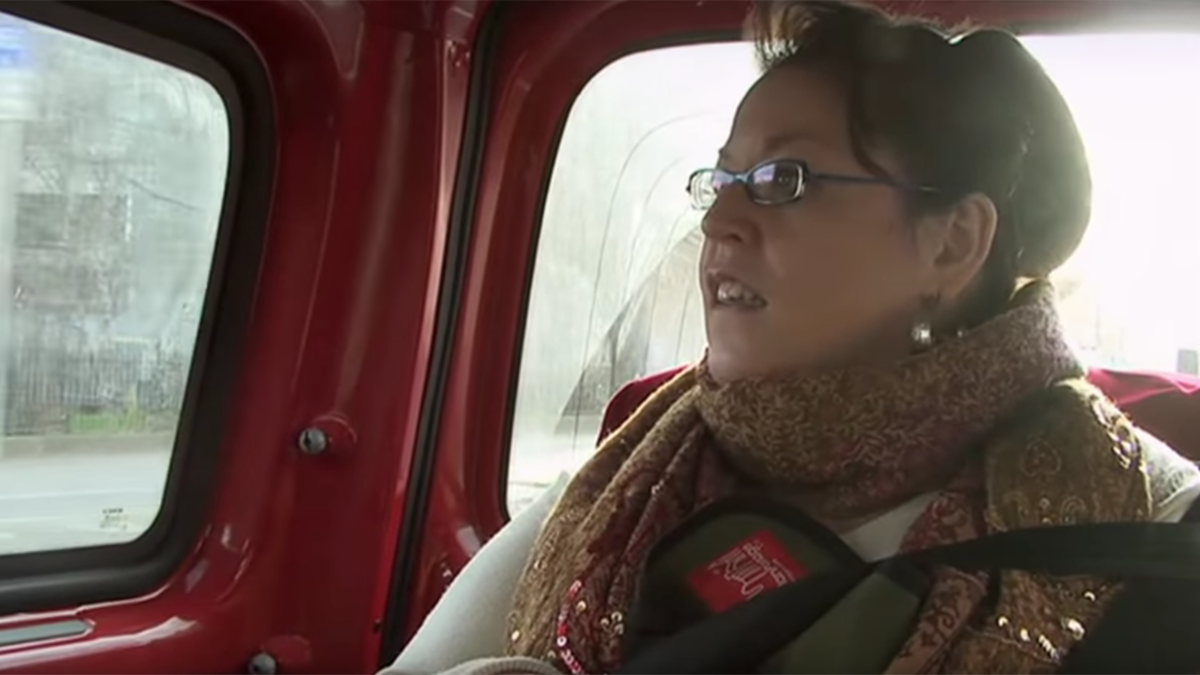In Pretty Proud Boy, Winnie (Deanna Wells) remembers what it was like seeing her son David (Zak Westfall) in prison. “There he was, sitting in his cell, gaunt as a ghost,” she says. “My boy, my lovely boy. This is the one road that he was supposed to keep off. His eyes, like a baby’s, while trying to be a man.”
The void between boyhood and manhood is at the heart of Pretty Proud Boy, an audio play written by Rosaleen McDonagh and produced by Corrib Theatre. It’s set in Ireland during the COVID-19 pandemic, but the story is largely about the anguish of a mother who both loves her son and is horrified by how far he has journeyed down the road of fascism and how little he has grown up.
Since Pretty Proud Boy lasts about 30 minutes, the details of Winnie’s and David’s lives have to be conveyed swiftly, sometimes with awkwardly blunt dialogue. Yet you can’t stop listening. Pretty Proud Boy is more than a play—it is a requiem that refuses to temper tragic lives with tidy moralizing or hollow optimism.
David is part of the yellow vests movement, an anti-government crusade that started as a protest against French President Emmanuel Macron’s planned fuel price hike and extended across Europe. Both conservatives and liberals have been tied to the demonstrations, which were empowered partly by racism (“Ireland is for the Irish,” David callously claims).
Pretty Proud Boy begins after David has been arrested and released for fighting with a group of Black Lives Matter protesters. At the trailer where David and Winnie live, he learns that she has discovered his gun next to his computer and under his magazines—and that she wants to know why he fell prey to far-right machismo.
McDonagh deftly reveals how entrancing political extremism can be to an alienated young man. We start to see the vulnerability behind David’s bigotry as he describes the moment when he was given his gun. “They gave me a weapon,” he says. “Nobody ever gave me anything.”
David is not entirely exaggerating, since he and Winnie are Irish Travellers. Travellers are an Indigenous ethnic minority known not only for having their own language and a history of living as nomads, but for being discriminated against and overly policed. In fact, anti-Traveller racism is so pervasive in Ireland that the Irish state didn’t recognize Travellers as an ethnic minority until 2017.
Pretty Proud Boy elegantly illustrates how institutional racism pits the marginalized against the marginalized. It doesn’t matter to David that he and the Black Lives Matter protesters he fought with have probably faced some of the same horrors. Blaming people who don’t look like him is a seductively easy answer to his pain. “We’re a white country,” he tells his mother. “The government should be looking after us!”
McDonagh occasionally allows the play to descend into obviousness. “My infiltration into this fascist, racist, fucking homophobic mire was an adrenaline rush,” David tells Winnie. “A sense of purpose took over.” He sounds like a scholar who is studying the yellow vests movement, not someone who is part of it. Letting David be less eloquent might have slowed the story, but it would have allowed for a truer portrait of a deluded soul.
Near the play’s end, Winnie tells us what it has been like watching David’s moral descent. “Then all of a sudden, he changed in himself and towards the family, making us watch ridiculous documentaries about people in America who hated Black people,” she says. “He’d stand up and rant and rave. Not only did we have to listen, but we had to agree with everything he was spouting out.”
It’s a horrifying description. Does it mean that there is no hope left for David? Maybe, maybe not. McDonagh does more than show us someone who is being eaten alive by desperation and hate. She shows us that David’s story exists within the story of the injustices endured by Travellers.
That doesn’t excuse David’s actions, but it doesn’t help us understand him—and understanding may be the only thing that can help a broken man reclaim the boy he once was.
LISTEN: Pretty Proud Boy streams at corribtheatre.org/pretty-proud-boy through June 20. Tickets are pay what you will.
